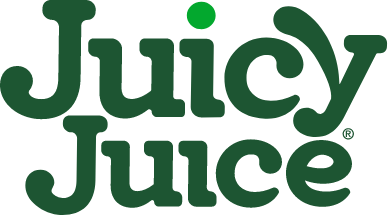Sounds Into Words


As you’re likely discovering, there are few sounds sweeter than your child’s voice as she coos, babbles and begins to speak. “I love hearing my 12-month-old daughter, Daniela, talking to herself,” says Christine DiFabio, of East Brunswick, N.J. “She chatters while she looks at a book, and sometimes she seems to be telling jokes. I can’t understand her words, but they make sense to her.”
In just a few short months, those sounds will have meaning to others too. When Daniela passed her first birthday, she entered the exciting period during which children learn to shape early sounds into recognizable words.
What to expect
Like so many aspects of a child’s development, language skills vary greatly from one individual to another. One youngster might be uttering two words, another 10, but they’re both progressing normally. Yet one rule does hold true for most kids: “At twelve months, children understand more words than they can say,” says Dr. Mabel Rice, a professor at the University of Kansas, in Lawrence, Kans., and the director of its Language Acquisition Studies Laboratory.
That’s the good news: You don’t need to keep a tally of your toddler’s every word. Focus more on receptive language, which is the ability to understand what is being said, than on expressive language, which is the ability to utter words. “If you tell a one-year-old, ‘Roll the ball to me,’ and she does, then you’re in good shape-even if she can’t say the word ball yet,” explains Dr. Alice Sterling Honig, professor emerita of child development at Syracuse University and author of Talking with Your Baby: Family as the First School.
When should you be concerned? If your baby isn’t uttering any words when he’s nearing the 18-month mark, talk to your pediatrician. The doctor will likely order an audiological exam, says Rice. Such a test can rule out hearing problems, which are common roadblocks to speech development. If necessary, your doctor can suggest other tests or refer you to specialists.
Day by day
What’s the smartest way for a parent to encourage budding speech skills? Forget flash-card sessions and other drills. “The best way to teach children language is through everyday repetitive activities,” counsels Rice.
Just as a sports commentator provides fans with a play-by-play account of a game, you can help your child learn words-and experience the world-by keeping up a continuous conversation whenever you’re together. While preparing breakfast, you can say, “I’m giving you your bowl. Now I’m pouring the cereal into the bowl. Here’s your spoon! Do you like your cereal?” Not only is your little listener becoming familiar with nouns like bowl, spoon and cereal, she’s getting a chance to observe how they’re used in the context of a variety of sentences.
You don’t have to spend hours a day inventing conversation with your child to reap the benefits of these interactions. Take advantage of feedings, baths and bedtime-or even mundane chores like washing the dishes and taking trips to the supermarket-to talk about what he’s seeing and experiencing.
Melany Farr of Las Vegas has been chatting with her son Sawyer since he was days old. When she brings him along on errands, she keeps him apprised of what’s happening. “I tell him where we’re going and what I’m doing, and I give him a chance to respond. Even back when he just babbled, I acted as if we were having real conversation.”
You’ll notice that your child is fastest at picking up the names of things that appeal to him, says Rice. He’s more likely to know the name for his bottle or a cookie than for a towel, for example, even though he’s familiar with all three. Capitalize on his interest by labeling things he enjoys. If you see him watching the family cat, you could say, “Yes, that’s a cat. That’s our cat. Her name is Ginger.”
Here’s another useful strategy: Look for ways to expand on what your child says. Honig suggest that if she points to the refrigerator and exclaims, “Yo!” you might follow up by asking, “Do you want some yogurt?”
Toddlers carefully observe those around them, warns Rice, so you should set a good example by avoiding baby talk, being a good listener, taking turns speaking and using only words you want your child to repeat. You should also resist the urge to correct your child when she mispronounces words, saying “dat” instead of “that,” for instance.
“A child’s pronunciation may not sound like ours, and that’s okay,” says Honig. “She’s trying hard to get her lips, tongue and other parts of her body working together.” If you use correct pronunciation, she’ll soon pick it up.
As the day winds down, you and your child can curl up with a food book. Reading repetitive stories and paging through board books are enjoyable ways-for parent and child-to boost a youngster’s language learning.
By talking and reading regularly to your one-year-old, you’ll help him expand his language capabilities by leaps and bounds. Soon you won’t have to wonder what he’s thinking-he’ll be able to tell you.


